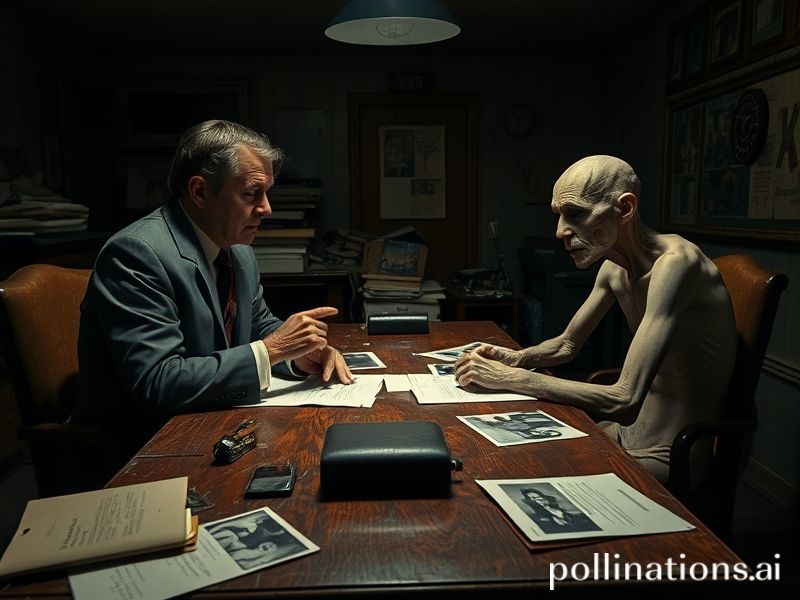Did Ed Gein Help Catch Ted Bundy? The Internet’s Latest True Crime Conspiracy
**Did Ed Gein Help Detectives Catch Ted Bundy? The Internet’s Latest True Crime Obsession**
Alright, folks, buckle up! We’re diving headfirst into the latest true crime rabbit hole that’s got the internet buzzing: the peculiar, somewhat twisted theory that Ed Gein, the infamous “Butcher of Plainfield,” might have helped detectives catch Ted Bundy. Yes, you read that right. It’s like the plot of a Netflix docuseries that’s already been optioned, but with more question marks and fewer definitive answers.
**The Players: A Quick Recap**
First, let’s set the stage. We’ve got two of America’s most notorious killers:
1. **Ed Gein (1906-1984)**: A Wisconsin farmer and grave robber whose gruesome crimes inspired some of horror’s most iconic villains, like Norman Bates (Psycho) and Leatherface (The Texas Chain Saw Massacre). Gein’s crimes were so shocking that they practically invented the trope of the backwoods psychopath.
2. **Ted Bundy (1946-1989)**: The charming, charismatic serial killer who confessed to at least 30 murders across several states in the 1970s. Bundy’s case is a true crime mainstay, thanks to his good looks, manipulative personality, and the sheer audacity of his crimes.
**The Theory: A Helping Hand from Beyond the Grave?**
So, how did these two killers become linked in the internet’s collective consciousness? It all starts with a single, chilling line from Bundy himself. During an interview with psychologist Dr. Dorothy Ottenberg, Bundy mentioned that he had once visited Ed Gein’s grave and left a note. The note read: “Dear Ed, I would have liked to have met you. You were my hero. Ted.”
Now, fast forward to 2023, and this tidbit has resurfaced, sparking a wave of speculation. Some true crime enthusiasts are suggesting that Gein’s crimes might have provided Bundy with inspiration or even practical advice. But here’s where things get really wild: some are even theorizing that Gein, from beyond the grave, somehow helped detectives catch Bundy.
**Why Is This Trending?**
1. **The Power of True Crime**: Let’s face it, true crime is having a moment. From podcasts to documentaries, we’re all obsessed with trying to understand the minds of monsters. This theory taps into that fascination, offering a tantalizing new angle on two of the most infamous cases in American history.
2. **The Internet’s Love of a Good Mystery**: The internet thrives on unsolved mysteries and cold cases. This theory, with its ghostly implications and lack of concrete evidence, is like catnip for armchair detectives everywhere.
3. **The Dark Side of Hero Worship**: Bundy’s admission that he admired Gein touches a nerve. It’s a stark reminder of how killers can become twisted role models, inspiring others to commit heinous acts. This theory forces us to confront that uncomfortable reality.
4. **The Rise of “What If” History**: In an era of alternate history and “what if” scenarios, it’s no surprise that this theory has gained traction. It’s a fascinating (if somewhat macabre) thought experiment: what if a long-dead killer helped bring another to justice?
**Cultural Impact and Significance**
This theory is more than just a morbid curiosity. It’s a reflection of our collective fascination with the darker side of human nature. It forces us to grapple with questions about inspiration, influence, and the enduring legacy of infamous killers.
Moreover, it highlights the power of the internet to resurrect and reinvent historical narratives. What might once have been a footnote in a true crime book is now a global trending topic, sparking debates and discussions across social media platforms.
**Conclusion: A Theory That’s Here to Stay**
Whether or not you buy into the idea that Ed Gein helped catch Ted Bundy, there’s no denying that this theory has captured the internet’s imagination. It’s a testament to our enduring fascination with true crime, our love of a good mystery, and our penchant for exploring the darker corners of history.
So, as we continue to dissect and debate this theory, let’s remember to approach it with a critical eye. After all, the truth is often stranger than fiction, but that doesn’t mean we should accept every chilling tale at face value.
Now, if you’ll excuse me, I’ve got some true crime podcasts to catch up on. And maybe, just maybe, I’ll leave a note at Ed Gein’s grave next time I’m in Wisconsin. You know, for research.







